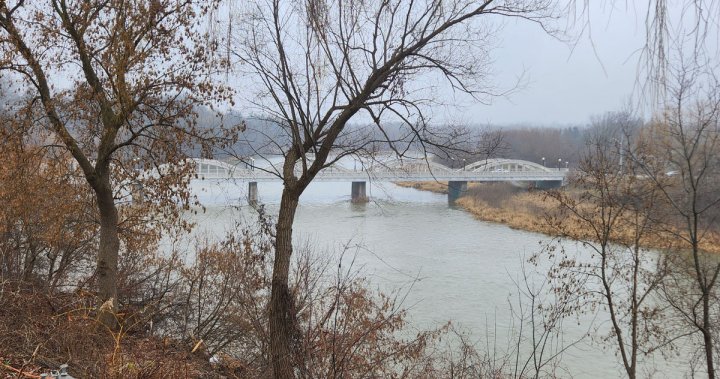Connor McDavid didn’t have an answer.
His head coach, meanwhile, took a long, deliberate pause to ponder the same question — why haven’t the Oilers been able to draw penalties against the Dallas Stars in the NHL’s Western Conference final?
“I’ve heard a lot about the past, being a spectator, not a part of the NHL, not as a coach … sometimes the standard gets changed a little bit,” Edmonton bench boss Kris Knoblauch said of playoff officiating. “(Referees) would definitely want to make sure it’s a penalty, when in the regular season, maybe some things get let go.
“That’s obviously unfortunate for us.”
The Oilers and Stars sit tied 1-1 in the best-of-seven series with a berth in the Stanley Cup final on the line following a 3-1 Dallas victory on Saturday.
Edmonton took Thursday’s opener 3-2 in double overtime despite going on the man advantage once — a call for too many men on the ice — compared to 10 minutes of power-play time for the home side.
Breaking news from Canada and around the world
sent to your email, as it happens.
The Oilers and Stars got one power play each through the first 58 minutes of Game 2 before a couple of late calls either way with the result all but decided.
It’s stark contrast compared to Edmonton’s two previous series.
The club scored six times off 18 man-advantage chances in the second round against the Vancouver Canucks after opening the playoffs 9-for-25 versus the Los Angeles Kings.
The Oilers, who had the league’s fourth-best power play in the regular season, have dipped to a still-impressive 34.9 per cent success rate thanks to a 1-for-13 run dating back to Game 5 against Vancouver, but have only had those three opportunities in just over seven periods of conference final action.
“We’ve got a very good power play and we win a lot of games on the power play,” Knoblauch continued in his measured answer. “It’s unfortunate for us that it’s tougher to draw penalties in the playoffs than it is the regular season.”
Edmonton averaged four minutes 26 seconds of power-play time across 82 games in 2023-24, but have earned a total of just 4:42 in this series.
“The standard’s the same for both teams,” Knoblauch added of the Stars matchup. “I’m not saying it’s unfair for us, but we would like the same standard (as the regular season).”
Oilers defenceman Mattias Ekholm was less diplomatic when queried on the same topic in the visitors locker room at American Airlines Center late Saturday.
“Great question,” he said. “I have no idea. I looked at (Edmonton defenceman Darnell Nurse’s) penalty, and then five minutes later I get cross-checked right in the same spot. It’s hard. It’s physical. It’s playoff hockey.
“We need to work harder to draw more penalties.”
Oilers forward Connor Brown pointed to the Stars’ discipline — Dallas has averaged a playoff-low three minutes short-handed per game this spring — as part of the equation.
“They check with their feet,” he said. “But I think we can do a better job of holding onto the puck and creating some momentum so they’ve got to chase us around a little bit.
“That’s usually when you get your calls.”
The Stars have also largely done a good job at even strength against McDavid and Leon Draisaitl, who sit 1-2 in post-season scoring. McDavid snagged Thursday’s double OT winner and Draisaitl had a goal and an assist, but both were held off the scoresheet in Game 2 — a first for the Oilers in these playoffs.
Despite plenty of attention being paid to his two stars, Knoblauch pointed to the looks Edmonton’s dynamic duo are still getting on Stars goaltender Jake Oettinger.
“I’d be a little bit alarmed if they weren’t getting their scoring chances,” he said. “But we’ll look at that. We had enough opportunities to score more than we did (in Game 2).
“There’s going to be some tweaks we can make.”
McDavid, Draisaitl and Co. will have to find a way through — especially if the referees continue to keep the whistles largely silent.
© 2024 The Canadian Press




